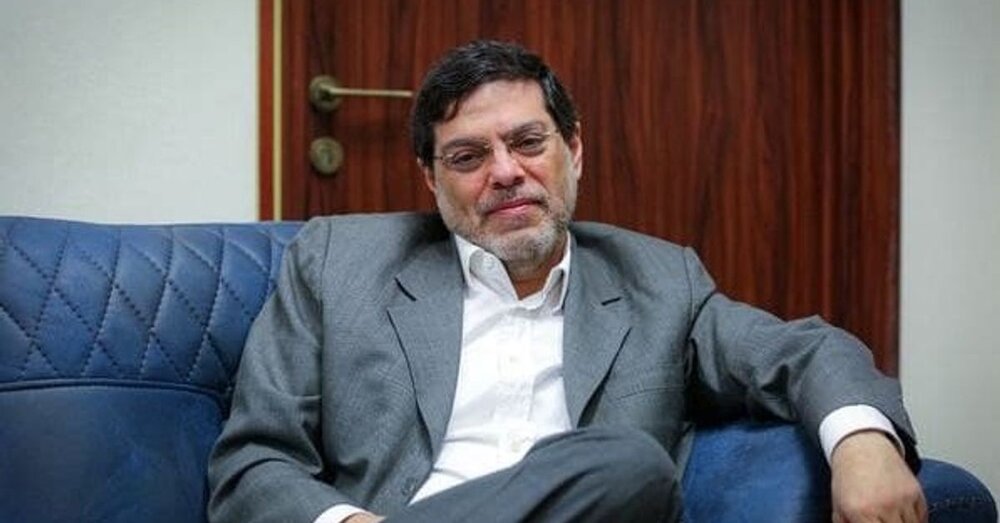Advisor: Agreement in Vienna within reach despite external pressure on U.S.

TEHRAN— An advisor to the Iranian negotiating team has emphasized that despite the external pressure imposed on the United States administration, Tehran and Washington are still close to reaching an agreement.
Mohammad Marandi made the remarks in an interview with the Al Jazeera news network on Monday.
According to the media advisor, Tehran is not one iota worried about the quarterly meeting of the International Atomic Energy Agency’s Board of Governors meeting which started on Monday afternoon.
Marandi also emphasized that U.S. President Joe Biden should make decisions to solve the existing issues on the way to reviving the nuclear deal, officially called the Joint Comprehensive Plan of Actions (JCPOA).
The comment comes while U.S. Secretary of State Anthony Blinken who is in Mexico for economic consultations said on Monday that Tehran’s response to Washington’s amendments to the EU proposal is “a step back.”
“I can't give you a timeline except to say, again, that Iran seems either unwilling or unable to do what is necessary to reach an agreement,” Reuters quoted Blinken as saying.
Prior to Blinken’s statements, Iran’s Foreign Ministry spokesman Nasser Kanaani told the press on Monday, “As you know, we submitted our response a while ago and we are waiting to receive the official answer from the other side.”
He continued by saying that Iran has always emphasized that the other parties to the negotiations, especially the Americans, should take constructive actions to reach an agreement.
The U.S. is a country that has withdrawn from the JCPOA and imposed illegal and unilateral sanctions on the Iranian government and people, the spokesman noted, adding, “Due to this behavior, it does not have the right to be a claimant. It is the U.S. that must prove that it is a reliable member and is not a troublesome regime in order to return to the agreement process. It is Washington that must prove that it adheres to international norms and respects international norms.”
Kanaani added that Iran, in its response, has not raised any new issues that would hinder the formation of an agreement and the fruitful conclusion of the negotiations.
“Tehran will not give in to the excessive demands of the opposite parties, nor will it retreat from its red lines,” he underscored.
The spokesman also noted that both the United States and the European troika (France, UK, and Germany) must prove that they adhere to international standards in the process of negotiations and give priority to their interests rather than giving in to the pressure by the Israeli regime.
“As we have said many times if the other side has the necessary political will to reach an agreement it will be possible to reach a comprehensive and good agreement,” Kanaani concluded.
David Barnea, the head of the Israeli regime's spy agency Mossad, said on Monday that Iran would not be granted "immunity" even if the United States re-entered the JCPOA.
“Even if a nuclear deal is signed it will not give Iran immunity from the Mossad operations,” Barnea said. “We won’t take part in this charade and we don’t close our eyes to the proven truth.”
He then openly threatened Iran militarily, saying, “The Iranian leadership must be aware that the use of force against Israel or against Israelis will be met with a painful reaction on Iranian soil. We will chase after the ones who sent those affiliates. It will happen in Tehran or Isfahan.”
Responding to this open and direct threat, Kanaani told the Tehran Times correspondent on Monday, “We do not expect a terrorist regime to do anything other than terrorist actions.”
Barnea's latest threat came on the same day that the regime’s caretaker Prime Minister, Yair Lapid, landed in Germany to encourage its Western partner to abandon the Iran nuclear deal.
The regime has been actively campaigning against the resurrection of the JCPOA, and evidently the E3 countries (Britain, France and Germany) are falling for this deceit.
In a joint presser with German Chancellor Olaf Scholz on Monday, Lapid said, “Returning to the nuclear agreement under current conditions would be a mistake.”
Scholz also accused Iran of halting the negotiations, expressing regret that Iran has not yet responded positively to the EU text.
“It does not seem that there will be a signing of the agreement in the near future, because of Iran,” the German chancellor said.
In this regard, Kanaani told the press on Monday that he expects the E3 countries to “act constructively.”
“Our advice to the European partners of the Vienna talks is to take a constructive path and make amends for the past mistakes and try to pave the way for an agreement in a constructive and comprehensive way,” he pointed out.
Leave a Comment